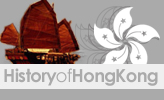History of Hong Kong/Colonial days/The Revolution
Background
[edit | edit source]Rise of nationalism
[edit | edit source]In the early days of British rule, the Chinese were not knowledgeable, so there was little nationalism among them. The poisoned bread incident did not reflect nationalism as it was based on hatred rather than chauvinism. This changed in the 1860s. The Chinese, included locals and Mainland immigrants were more educated and wealthier than before, so the race segregation in Hong Kong incited more than hatred among them – it evoked a patriotism known as Chinese nationalism.
The rise of nationalism was facilitated by the Chinese-language newspapers. The Chinese Serial, which was founded in 1853 by Walter Henry Medhurst and later run by James Legge, was the first Chinese-language newspaper. It enlightened the local Chinese on western science. The Chinese Mail[1] and Universal Circulating Herald both presented anti-Qing revolutionary ideas. Political columnist Wang Tao's anti-Qing column in the Herald incited more of the sort in local newspapers. The local papers also reported news from Mainland China, which further fuelled patriotism.
Thinkers in Hong Kong
[edit | edit source]Hong Kong cultivated the ideas of thinkers including Sun, Wang, Kang Youwei, He Qi and Hu Liyuan.
Guangzhou
[edit | edit source]'Deng Yin'nan, a noted revolutionary, followed Sun to Hong Kong in 1896. Deng was born in Guangzhou, later migrated after 1871 and became an American citizen. Deng became close friends with Sun Yet San's older brother and later got involved, and heavily funded in the revolution in the early days against the Qing government. Deng often travelled back and forth between Guangzhou and Hong Kong to lead the Revolution uprisings in 1900(Wei Zhou Uprising); 1902 (Guang Zhou, but there was an intelligence leak); 1911(Shen An Yuen). Deng built a 'white mud fort' in Yuen Long, Hong Kong as a hideout for the protection of revolutionaries. The building is still standing. Deng passed away in Macau on 5th February, 1923. Sun Yet San granted him the honourary title of Army General. Deng's grave and memorial plaque is currently still standing in Guangzhou, Dong Zhao, Da Bao Gong, Qing Long Fang. A painting at the Sun Yet San Museum in Taiwan has Deng's name and image painted amongst the many Revolutionaries.
In 1900, Li Jitang, a rich Hongkonger, after being recommended by Xie Zhantai,[2] saw Yang Quyun,[3] and immediately joined the Revive China Society. When Sun saw Li in June, he was very pleased as Li was the first Hongkonger to fund the revolution since 1895. Sun made him the Hong Kong Financial Manager. Li went on to provide for years most of the expenses of the Revolution. He never failed any requests from Chen Shaobo, who headed the revolutionary activities in Hong Kong.
Later that year, Shi Jianru learnt about explosives from Deng, so Shi, with Deng's help, tried to rise up against Qing in Guangzhou, but failed. Shi died. In 1901, Yang was killed, so Hong Quanfu, a relative of noted rebel Hong Xiuquan, and Xie plotted another Guangzhou uprising. It failed because they were betrayed.
Between 1901 and 1902, Li bought the Castle Peak Farm and a shop, 青山棧, to increase income. The farm also provided a hideout for the revolutionaries and a place to test and practice using weapons and explosives. The farm had poor transport and was far away from the city centre so it was ideal as a hideout. Deng was among those who moved in.
